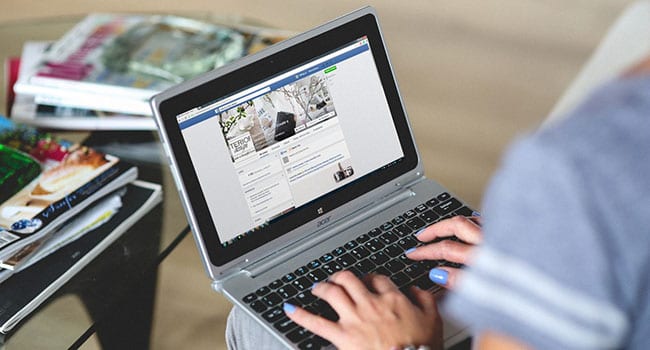 We’re in unprecedented times. We need connection now more than ever, but we also need to stay two metres back.
We’re in unprecedented times. We need connection now more than ever, but we also need to stay two metres back.
And as more and more information about the COVID-19 pandemic is released, it seems like this might be the way we have to do things for a while.
But how do we stay connected to our community? And how do we support each other during this time of crisis?
One of the ways is through a social media platform called Facebook groups.
What is a Facebook group?
A Facebook group is a community of people who join together on an online platform. They want to engage in conversation and build online relationships with each other.
Anyone who has a Facebook profile can start a group and that person becomes the administrator of the group. So they would monitor behaviour and discussion, making sure that everyone stays respectful.
When you start a group, it’s up to you to set the tone for acceptable behaviour. Most groups have a posted set of rules for everyone to follow. And not following the rules often will get you removed from the group – and not let back in.
Imagine a group is a room full of people who all have something in common and all have some experience to share with one another. It takes a certain amount of monitoring to make sure everyone stays well behaved.
What are the different types of Facebook groups?
There are three types of groups: public, closed and secret.
Public groups are just that, public. You don’t have to belong to see anything and you don’t need approval to join.
Closed groups are a bit more closed off. You have to request to join and are usually asked a few questions before you are let in.
A secret group is completely hidden. You can’t search for them to find them and you have to be asked to join.
Most of the COVID-19 related Facebook groups I’ve seen have been public or closed. I haven’t been invited to a secret pandemic group, although that does sound cool.
How do you create a Facebook group?
On the home page of your Facebook profile, go to groups listed in the bottom left. Hit the blue create button and name your group (you can change your name until you have 250 members, see how here).
From there, you start adding members and completing all of the information about your group.
And if you’re looking for a Facebook group, you can type words in the search bar and start researching.
Why are Facebook groups important now?
Facebook groups are so important during COVID-19 since they’re a way for people to stay connected.
As soon as the pandemic started, people across the country jumped into action, creating Facebook groups for supplies, support, connection and everything in between.
Since a lot of people are self-isolating, joining Facebook groups gives them some connection to the outside world. Remember, it’s physical distancing, not social distancing.
Facebook groups are very interactive. You can ask questions and get real-time answers. As long as the group is managed properly, a lot of support can come through Facebook groups.
Some of the amazing ways that Facebook groups are being utilized during this COVID-19 pandemic include:
- Communities are creating groups to keep people connected and offer support.
- Schools are creating groups to stay connected to students and parents.
- Sports groups are creating groups to stay connected to their athletes and show the different things people can be doing to stay in shape.
- Service providers are creating groups to keep their clients calm and ensure everyone is safe.
- Gyms and fitness facilities are creating groups to share workout routines.
- Churches are creating groups to offer support to their congregations.
These are just a few examples. Every day, more and more groups are popping up. Every industry is finding a way to keep their audiences connected both with them and with each other.
Facebook groups are a great way to stay connected, interact with each other and continue to offer support wherever needed.
Donita Fowler is an online marketer who supports entrepreneurs in their quest to be the boss of their online platforms.
Donita is a Troy Media Thought Leader. Why aren’t you?
The views, opinions and positions expressed by columnists and contributors are the author’s alone. They do not inherently or expressly reflect the views, opinions and/or positions of our publication.


